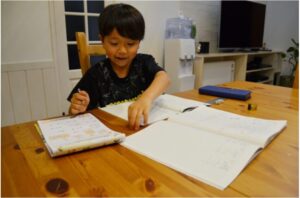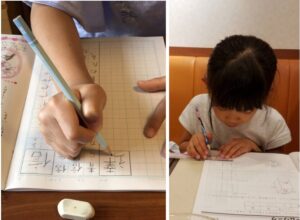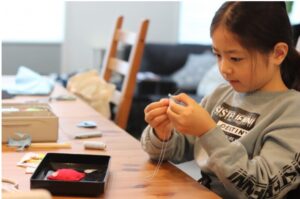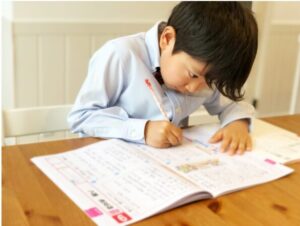In Japanese schools, students are often given a variety of homework during summer vacation. In this article, we will delve into the various types of homework, highlighting some unique assignments. We will also explore the concept of the “Independent research project” and explain its significance. By the end of this article, you will understand why homework are assigned during summer vacations in Japanese schools.
What Kind of Homework Is Given to Students During Summer Vacation?

In most government elementary, junior, and high schools in Japan, summer vacation is normally for around 40 days, from middle of July to the end of August.
The amount of homework assigned varies by school, but generally, students are expected to do a certain amount of daily studying to align with the length of summer vacation. For example, in elementary school, students may be given tasks such as completing 2 pages of math and 1 page of Japanese each day.
In other words, students are expected to work on their homework daily.
However, schools ensure that they don’t assign an excessive or unmanageable amount of homework that would be difficult to complete during summer vacation.
Examples of Summer Vacation Homework
Homework assignments vary in each school. We will show you some examples here.
Elementary school students
1st to 3rd Grades:
・Kanji workbook
・Mathematics workbook
・Independent research project
・Picture diary

4th to 6th Grades:
・Kanji workbook
・Mathematics workbook
・Review workbook for 4 subjects
・Independent research project
・Book report/essay
・Home economics (sewing/cooking): Students are required to submit one completed work.

Junior high school students
Homework assigned to junior high school students varies by school and teacher. Here are some examples :
・Workbooks for each subject (Japanese, math, social studies, science, English, etc…)
・Draw a poster about a specific theme
・Independent research project
・Report of cooking at home
・Make a craft
・Book report
What do students draw on a poster?

Creating a poster is more than just a picture; it requires a keyword related to the theme. For instance, if the theme of the poster is environmental issues, traffic safety, or daily manners, the keyword will be “protect nature”.
Before drawing a poster, students need to decide on a theme, choose a keyword, and plan the layout. The keyword acts as a tagline.
What is “Independent Research Project”?

The Independent research project gives students the freedom to make a decision of what to research, how to research, and the format of the final outcome.
Since this is a project, many students work on it for a certain period of the summer holidays, deepening their exploration of their own theme. It is a great opportunity to stimulate children’s desire to explore and give them the experience of building self-confidence by following through on what they have decided to do.
Here are some examples of independent research projects.
・Crafting: Create items such as photo frames, candles, storage racks, etc.
・Experimenting: Conduct experiments with materials like magnets, water, etc.
・Researching: Explore topics like plant identification, transportation research, flower observation, or make your own picture books.
After summer vacation, many schools exhibit students’ homework (summer research projects and posters) or organize presentations about their assignments.
What is the purpose of summer vacation homework?

There are some reasons for assigning homework during summer vacation.
Developing study habits
There are no regular school classes during the approximately 1-month summer vacation. Engaging in daily learning during summer vacation helps students in a smooth transition to classes after the vacation. It also helps in maintaining a consistent routine.
Strengthen Knowledge Through Review
Summer vacation homework mainly consists of reviewing material covered during the school year. By engaging in these assignments, students can assess their understanding and reinforce their knowledge through review.
Summary
This article has explored various aspects of summer vacation homework in Japan. We have discussed many kinds of unique assignments students receive, such as posters, independent research projects, and picture diaries. Those homework is not only aiming to strengthen knowledge but to develop their study habits.
Japanese students study hard while enjoying their longest break.
For those who want to know more about Japanese education
Shin Edupower provides programs that enable online exchange and collaboration between schools in India and Japan, as well as study tours to Japan for educators and students. If you would like to know more about education in Japan, please feel free to contact us here.



